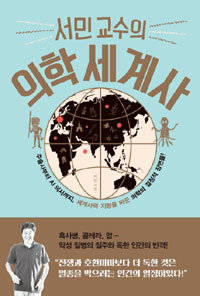'European Plague triggered Renaissance,' book says
'European Plague triggered Renaissance,' book says
Posted January. 05, 2019 07:27,
Updated January. 05, 2019 07:27

The driving force of the Renaissance was none other than a disease. It is the Plague that killed nearly one third of the population in Europe in the mid-14th century. Before the Renaissance, the Medieval Europe was under divine rule for more than 1,000 years. At the time, Catholic priests who used to treat patients using herbal medicine were more trusted than medical doctors.
In the wake of plaque epidemics, people prayed God as advised by priests, to no avail. While the mortality of plague stood at about 30 percent among ordinary people, it reached 42 to 45 percent among the priests. Witnessing the reality of the church that just let priests die hopelessly, let alone giving treatment, laypeople started to withdraw their belief in the church and God.
While the religious power weakened, the power of the king strengthened. The measures that brought the Plague to an end were not sincere prayers but hygiene and quarantine processes that states started to implement. As the 15th century began, European countries started to introduce the quarantine system and issue traveler’s certificate. Quarantine measures that are implemented at all airports and ports worldwide today effectively originated from the Plague.
Likewise, this book shed lights on critical moments that changed the course in world history due to advances in medicine. Owing to the extensive experience of the author, Professor Seo Min at Dankuk University of Medicine and famous public speaker, ordinary people who have not studied medicine can read and understand the contents of the book without difficulties.
Dr. Seo emphasizes that the encounter of two different civilizations and rapid social changes, rather than efforts by highly talented scientists, are the biggest driving force of progress in medical science. In ancient Greece, endless conflicts including the Peloponnesus War prompted exchange of people, society and knowledge. As a result, it was able to produce figures who laid the foundation for Western medicine such as Hippocrates.
Pundits predict that medical doctor as profession will disappear due to astonishingly fast development of high-tech medicine including artificial intelligence. However, the author argues that treatment is not simply about medication and surgery. Treatment based on sympathy and trust between the doctor and patient such as placebo effect is the centerpiece of medicine, which can never be substituted with AI.
“People who do not know the history of medicine cannot enjoy health,” Dr. Seo says in the book, which presents interesting stories of fierce struggles by medical scientists who have been ceaselessly striving to create a healthy society.
Won-Mo Yu onemore@donga.com




![[단독]다주택자 대출연장 규제, 서울 아파트로 제한 검토](https://dimg.donga.com/c/138/175/90/1/wps/NEWS/IMAGE/2026/02/20/133392750.1.jpg)


